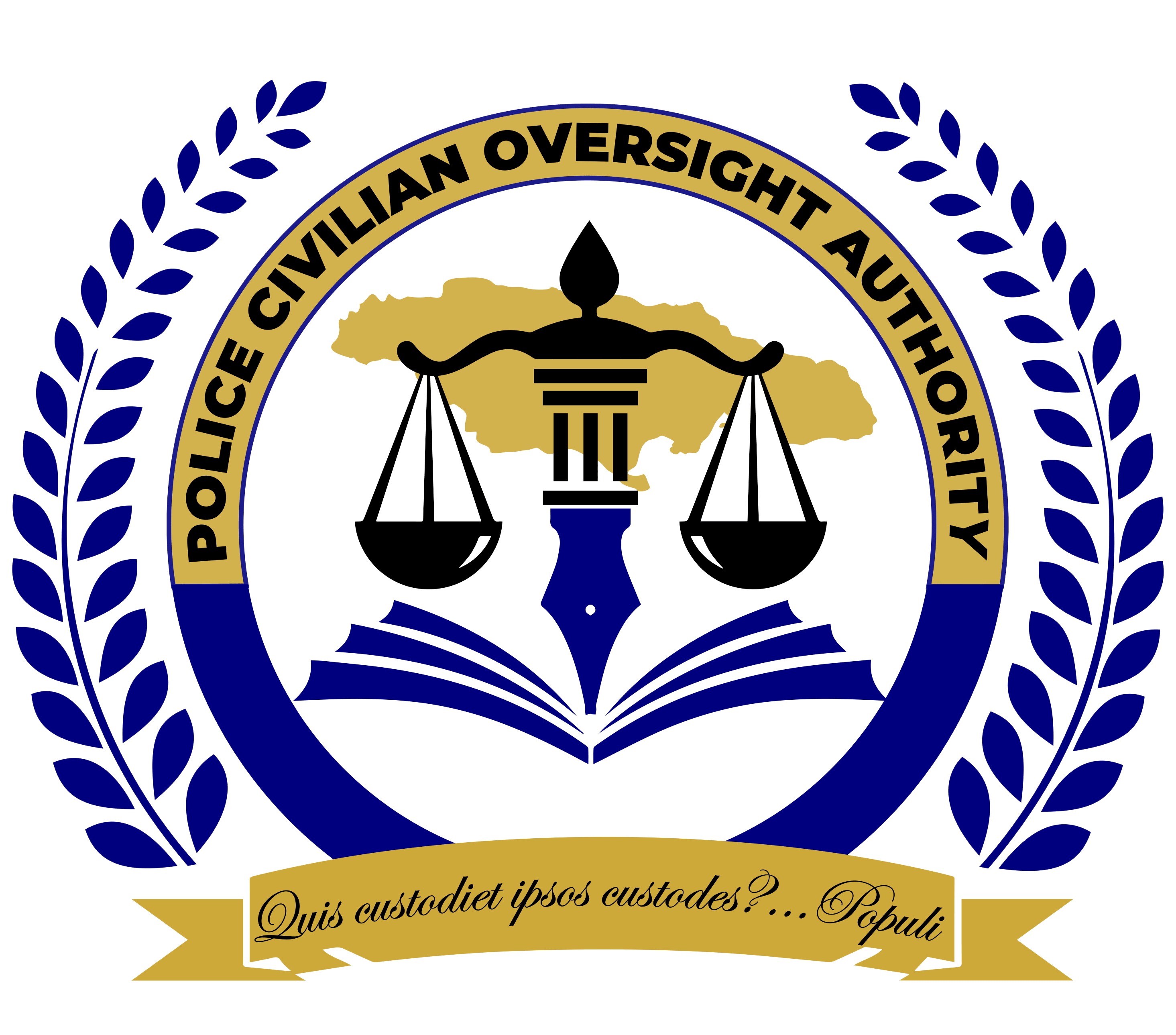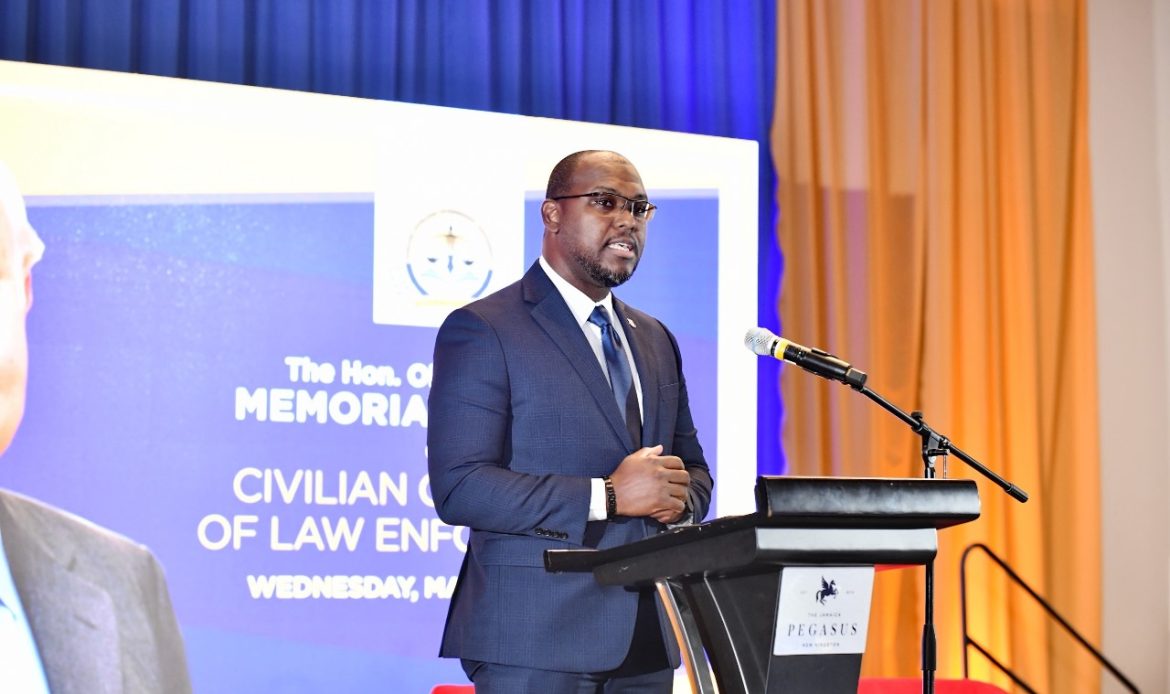Effective police oversight is indispensable in the fight against crime and the success of a democratic society, says Permanent Secretary in the Ministry of National Security, Ambassador Alison Stone Roofe.
“The demand for transparency and accountability within the Jamaica Constabulary Force (JCF) is a sentiment that is shared by many. It ensures that law-enforcement agencies are accountable to the people they serve.
“We can all agree that public trust is vital for a functioning democracy, thereby fostering civic engagement, compliance with laws and facilitating reforms as an essential pillar to economic growth and social stability,” she said.
Ambassador Stone Roofe’s remarks were delivered in a speech read by Chief Technical Director in the Ministry, Michael Morgan, at the inaugural Hon. Oliver Clarke Memorial Lecture on Civilian Oversight of Law Enforcement held on March 26 at The Jamaica Pegasus hotel in New Kingston.
The event, organised by the Police Civilian Oversight Authority (PCOA) was held under the theme ‘Partnerships for Progress: Improving Policing through Effective Oversight for a Safer Jamaica’.
It brought together expertise from around the world to enhance understanding among civilians and law enforcement of the policies and practices that foster trust and cooperation.
Ambassador Stone Roofe said that in recent years the JCF has made significant strides in building and strengthening partnerships with various stakeholders, including the private sector, community groups and other government agencies.
She noted that the lecture is a testament to the Ministry’s unrelenting commitment to continue strengthening the JCF to serve the public through strategic investments in infrastructure, technology, strong internal governance and independent civilian oversight.
Chair and Assistant Professor, Criminal Justice Department, Aurora University in the United States, Marcia Thompson Esq., who delivered the inaugural Hon. Oliver Clarke Memorial Lecture, highlighted the importance of community involvement in policing.
She noted that citizen engagement helps to build trust and encourages transparency, accountability, cooperation and mutual respect.
She is encouraging ongoing engagement and dialogue, measurable actions and outcomes, independent and continuous audits, evolving and continuous training, and diverse partnerships.
“As a policing organisation, I challenge you to assess yourself. Look at your data, find out what communities you are having the most negative and traumatic experiences in and then dig into it and try to find out why to fix that problem, and then replicate that across the country.
“If it works in one community to remove some of the trauma and the historical damage and fractures, it’s going to work in another community, but each community is nuanced,” she contended.
Co-presenter, Chief of Police for the Seattle Police Department in Washington, Dr. Shon Barnes, said civilian oversight agencies bridge the gap between law enforcement and the public.
He noted that independent oversight ensures that officers and departments are held accountable for their actions, reduces misconduct and abuse of power and provides an objective review process that is separate from internal police investigations, thereby increasing credibility in disciplinary actions.
Dr. Barnes said that a structured system for investigating complaints ensures misconduct does not go unchecked.
“It is possible to create a meaningful partnership with your law-enforcement agencies but it takes some strategy… . You need to be talking to everyone in the agency. You have to create your own buy-in by creating a system that is fair and just, and that all stakeholders understand. Spend time talking with persons [on the front line] and be willing to make adjustments where necessary,” he added.
Established by Parliament in 2005, the PCOA is an agency of the Ministry of National Security mandated to provide monitoring, inspecting, and auditing of the implementation of policies, standards and procedures of the JCF.
Mr. Clarke was a founding member of the PCOA, being appointed to the body in 2006.
His five-year tenure, mandated by the PCOA Act of 2005 also saw him serve on the Police Service Commission.
His contributions to the PCOA and, by extension, the advancement of civilian oversight and police reform, assisted in advancing safety and security in Jamaica and promoting active participation and partnership between the police and the public.
The original article can be found here.

